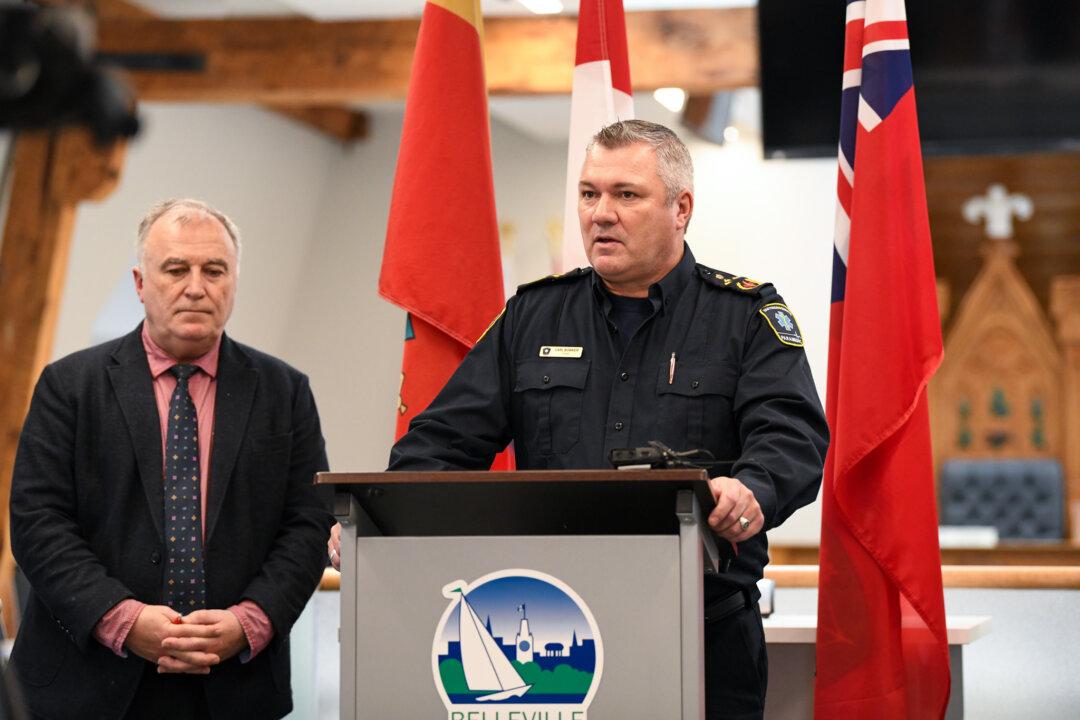The City of Belleville has declared a state of emergency in response to a growing number of drug overdoses that is leaving local emergency personnel, hospitals, and municipal services “close to a breaking point.”
Mayor Neil Ellis announced the state of emergency on Feb. 8, saying the small southeastern Ontario city simply does not have the resources it needs to cope with the ongoing “crisis.”





